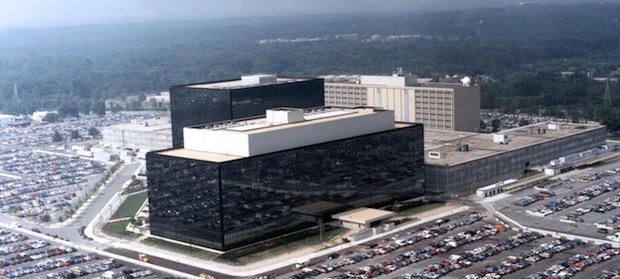
The National Security Agency has lost the political support it needs to maintain its controversial Internet and phone dragnet spying operation. Yesterday, July 24th, the House of Representatives nearly ratified the most brazen amendment to completely cut off funds for any broad NSA spying program (failing 205-217). With more time to build grassroots momentum and craft a less brute-force law curtailing NSA spy powers, the next bill will likely have enough support to win the day.
With only a few days to prepare, Representative Justin Amash managed to gain traction for an amendment to the defense appropriations bill that would deny the NSA the ability to use funds toward programs that broadly spied on Americans. The surprise was that a majority of Democrats bucked their own leader, President Obama, in support of the Amendment, 111-83.
https://twitter.com/jamesrbuk/status/360205168609992705
Since the revelation that the NSA was collecting phone records and Internet browsing behavior en masse, supporters of the the Domestic spying program have worried that the laws would not be renewed. Specifically, the NSA gets its legal authority from section 215 of the 9/11-era Patriot Act.
Section 215 expires at the end of 2015,” Patriot Act author Rep. Jim Sensenbrenner, told his colleagues during a Congressional hearing this month. “Unless you realize you’ve got a problem, that is not going to be renewed. There are not the votes in the House of Representatives to renew Section 215”. In other words, come 2015, Congress will be unlikely to renew the law that permits the NSA’s controversial program.
Over the past month, there have been a few laws proposed to limit the NSA’s ability to spy on Americans. Representative Steve Cohen’s FISA Accountability Act, for instance, would require both Congress and the Supreme Court justices to appoint new judges to the court that approves NSA spying request (FISA), rather than give conservative Chief Justice John Roberts the authority to appoint them himself. The FISA Court approves nearly every single NSA spying request, and this would, in theory, appoint judges who are more 4th-Amendment friendly (currently, there are 10 Republican judges and 1 Democrat, according to Wonkblog).
Unfortunately for NSA critics, none of the proposals came up to a full vote, so House members never had to declare whether they were for or against the status quo.
Now, we have definitive evidence that nearly half Democrats and Republicans support a radical reduction in NSA surveillance capabilities. A much greater percentage probably agree that there should be some change.
At the very least, it’s unlikely that the legal basis of the NSA dragnet will make it past the Patriot Act’s 2015 renewal date. In anticipation of this loss, the intelligence agencies will likely have to find some kind of compromise that will pass congress, rather than risk losing all of their powers.
Those who voted against Amash’s amendment today should be very (very) worried about the angry mobs they will face back home. The American populace has a particular talent for making life difficult for members when they hold town halls. Below is a video of the some of the angry town halls that House members faced during the 2009 health-care debate:
Yesterday, we published a list of representatives who voted down Amash’s amendment. Expect these representatives to feel the heat. The momentum is on the side of change, which means that NSA’s golden age of spying will likely be coming to an end.